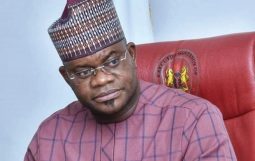By Abdul Aziz Na’ibi Abubakar
As Nigeria celebrates Democracy Day, we honor a true icon of democracy, Alhaji Atiku Abubakar. His contributions to Nigeria’s democratic journey have been remarkable, spanning over three decades of courage, sacrifice, and commitment to the people’s will. From his early political struggles to his bold stand against threats to democracy, Atiku has earned his place as a pillar of Nigeria’s democratic history.
In 1993, Atiku played a key role in the historic presidential election by stepping down for Chief Moshood Abiola, the candidate of the Social Democratic Party (SDP). His selfless act helped unite Nigerians behind Abiola, whose victory was tragically annulled by the military. Atiku’s decision showed his deep love for Nigeria’s unity and democracy, putting the nation above personal ambition.
As Nigeria returned to democracy in 1999, Atiku served as Vice President under President Olusegun Obasanjo. During this time, he championed economic reforms that strengthened Nigeria’s young democracy. He oversaw improvements in telecommunications, banking, and pensions, creating jobs and boosting the economy. His efforts laid a foundation for a stronger democratic system.
One of Atiku’s most celebrated moments came in 2007 when he stood firmly against President Obasanjo’s attempt to amend the constitution for a third term. This move threatened Nigeria’s democratic principles, but Atiku’s bold opposition, alongside other patriots, stopped it. His courage ensured that power remained with the people, not a single leader.
Atiku’s commitment to democracy did not stop there. He has consistently advocated for true federalism, calling for a restructured Nigeria where power is shared fairly among regions. In 2017, he launched the True Federalism campaign, traveling across the country to promote political decentralization. He believes this will deepen democracy by encouraging accountability and giving every Nigerian a voice.
In recent times, Atiku has opposed efforts to create a one-party system under President Bola Tinubu’s administration. He has warned against actions that weaken opposition parties, emphasizing that a strong democracy thrives on diverse voices. His stance reflects his lifelong dedication to protecting Nigeria’s democratic space.
Beyond politics, Atiku’s contributions to education have empowered Nigerians to participate in democracy. He founded the American University of Nigeria (AUN) in Yola, offering quality education to young people, including scholarships for Chibok girls who escaped Boko Haram. By investing in education, Atiku is building a generation that values democratic ideals.
Atiku’s journey has not been easy. He faced assassination attempts, political persecution, and false accusations, yet he never wavered. His resilience and belief in Nigeria’s democratic future inspire millions.
As we mark Democracy Day, let us celebrate Atiku Abubakar, a man who has risked his life, fought unconstitutionality, and stood for the people’s right to choose their leaders. His legacy as an icon of democracy shines brightly, reminding us that democracy is a treasure worth protecting. Atiku’s story is one of vision, dedication, and tenacity, a true gift to Nigeria.







